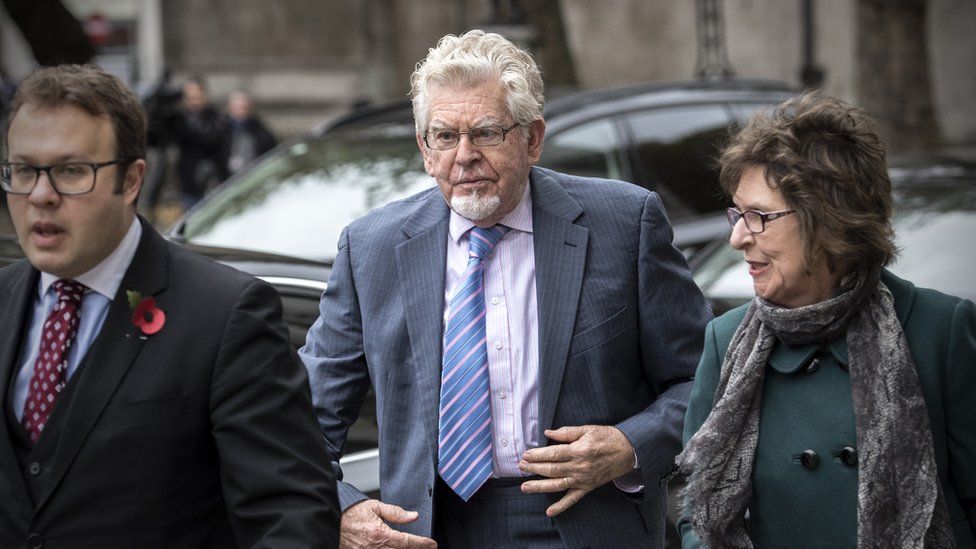Rolf Harris indecent assault conviction overturned
-
Published

Former entertainer Rolf Harris has had one of 12 indecent assault convictions overturned by the Court of Appeal.
Three judges in London ruled the conviction was "unsafe". But they dismissed applications by Harris, 87, to challenge the other 11 convictions.
There will be no retrial on the one conviction quashed.
The Australian-born TV presenter was jailed in 2014 for 12 indecent assaults, relating to four girls between 1968 and 1986.
He was jailed for five years and nine months and has since been released from that sentence.
The overturned conviction related to an allegation that Harris indecently assaulted an eight-year-old girl in 1969 at an event in Portsmouth.
'Witch hunt'
Though Harris was not in court for the ruling, he said in a statement: "I have said all along that I did not attend and had never attended the location in Portsmouth as this complainant alleged at my first trial.
"I was not believed and she was... I have served a nine-month prison sentence based on her word."
He thanked his legal team, led by Stephen Vullo QC, for "finally" proving his innocence of the alleged crime, which he said was backed up by a "fantasist" claiming to be the sole witness.
The man claimed to have been on leave from the military when he saw Harris in Portsmouth, but Mr Vullo's team proved he had never served in the armed forces - he was a lorry driver who had never left the UK.
Harris claims this information was in the hands of the police "from day one" but was not given to his first legal team "by mistake".
He added: "I hope the press supply the facts to the public to let them decide if I am a monster or the subject of a frenzied witch hunt which focused more on grabbing headlines than finding the truth."
Announcing their decision on Thursday, Lord Justice Treacy, Mrs Justice McGowan and the Recorder of Preston, Judge Mark Brown, refused to give Harris permission to appeal against the rest of the convictions.
They ruled that "stepping back and looking at the totality of the evidence" on those remaining counts, "we find nothing that causes us to doubt the safety of those convictions".